The UN's Role in Syria: What Options Remain?
Colum Lynch, The Washington Post
Photos | Transcript
 New York, NY—On June 1, 2012, Colum Lynch of The Washington Post briefed WFPG on The UN’s Role in Syria: What Options Remain? Lynch's remarks centered on the improbability of using military force in Syria, as well as alternate actions the UN might take. He also covered the role of UN peacekeepers and social media in forming UN and global analysis of the situation in Syria. The program was cosponsored by the Institute of International Education.
New York, NY—On June 1, 2012, Colum Lynch of The Washington Post briefed WFPG on The UN’s Role in Syria: What Options Remain? Lynch's remarks centered on the improbability of using military force in Syria, as well as alternate actions the UN might take. He also covered the role of UN peacekeepers and social media in forming UN and global analysis of the situation in Syria. The program was cosponsored by the Institute of International Education.
In terms of military strategy, Lynch noted that Western countries like Britain, France, and the US are not committed to pursuing decisive military action. The French have made it clear that their participation in a military strategy would be contingent on the support of the Security Council, where such a proposal would likely be blocked by Russia. Lynch also stressed concerns that military action would provoke Syria's neighbors, including Qatar and Saudi Arabia, which Lynch said may see their role in Syria as part of a broader strategic battle with Iran.
According to Lynch, one non-military option in Syria is pressuring Russia to change its position so that the UN Security Council can pursue a tougher approach. However, he says this will be difficult. Lynch also spoke about the possibility of arming the Syrian opposition, considered risky because they are not fully unified and seem uninterested in working with outside governments. Lynch said, "Everyone's stuck…what we're seeing now is, essentially, a lot of half measures that might be useful." Among these are UN Human Rights Council efforts to raise pressure on Syria by condemning the violence, and attempting to hold the perpetrators accountable.
Lynch also discussed the impact of the UN Peacekeepers in Syria. He denounced some of the criticism against them, asserting that the expectations are too high. "They're unarmed, and I think there are real limitations on what they can do. But they’re reporting, they’re putting pressure on the government." Lynch further noted that they provided a reliable account of what occurred during the Houla massacre, which allowed the international community to take appropriate action.
Social media is playing an interesting role in Syria. Lynch said Twitter and other social media are spreading information to governments and the global population faster than ever. These media outlets allow average citizens access to primary documents and videos. He commented, "it has had more of an impact in getting the message out quickly and instantly to decision makers, to people of influence. It's not going to decisively change the way powers are going to rule on issues, but it's making a difference in some way."
Lynch sees achieving peace in Syria as a very difficult task. He said it is starting to look less likely that Assad will be ousted, and some people think his survival is Syria's only chance for stability. Lynch believes it is too soon to say whether they are correct. Either way, in Lynch's view, the road to peace in Syria is rough, and the country's future is uncertain.
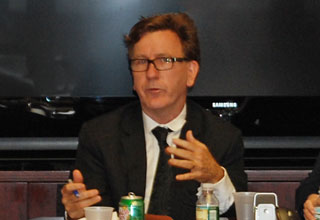 |
 |
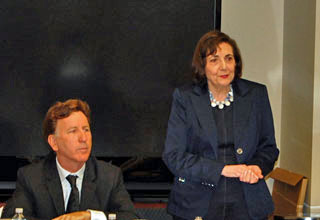 |
Colum Lynch of The Washington Post
addresses WFPG
|
|
WFPG president Patricia Ellis welcomes guests
|
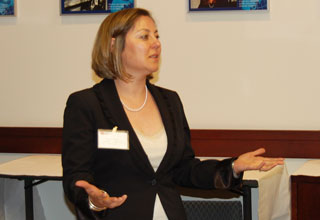 |
 |
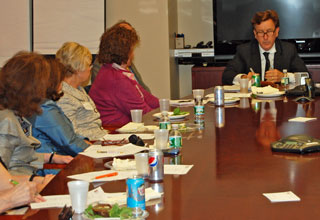 |
Daniela Kaisth welcomes guests on behalf of IIE
|
|
WFPG members and guests listen to the program
|
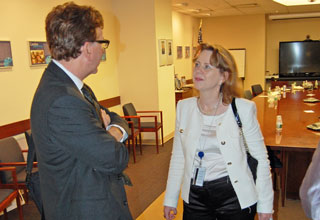 |
 |
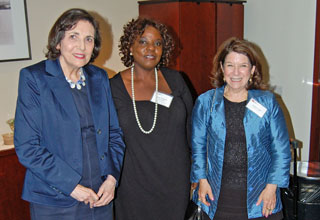 |
Colum Lynch speaks with Ambassador Greta
Gunnarsdottir of Iceland
|
|
Patricia Ellis with Deputy Permanent Representative
Sheila Nangoma Mweemba of Zambia
|
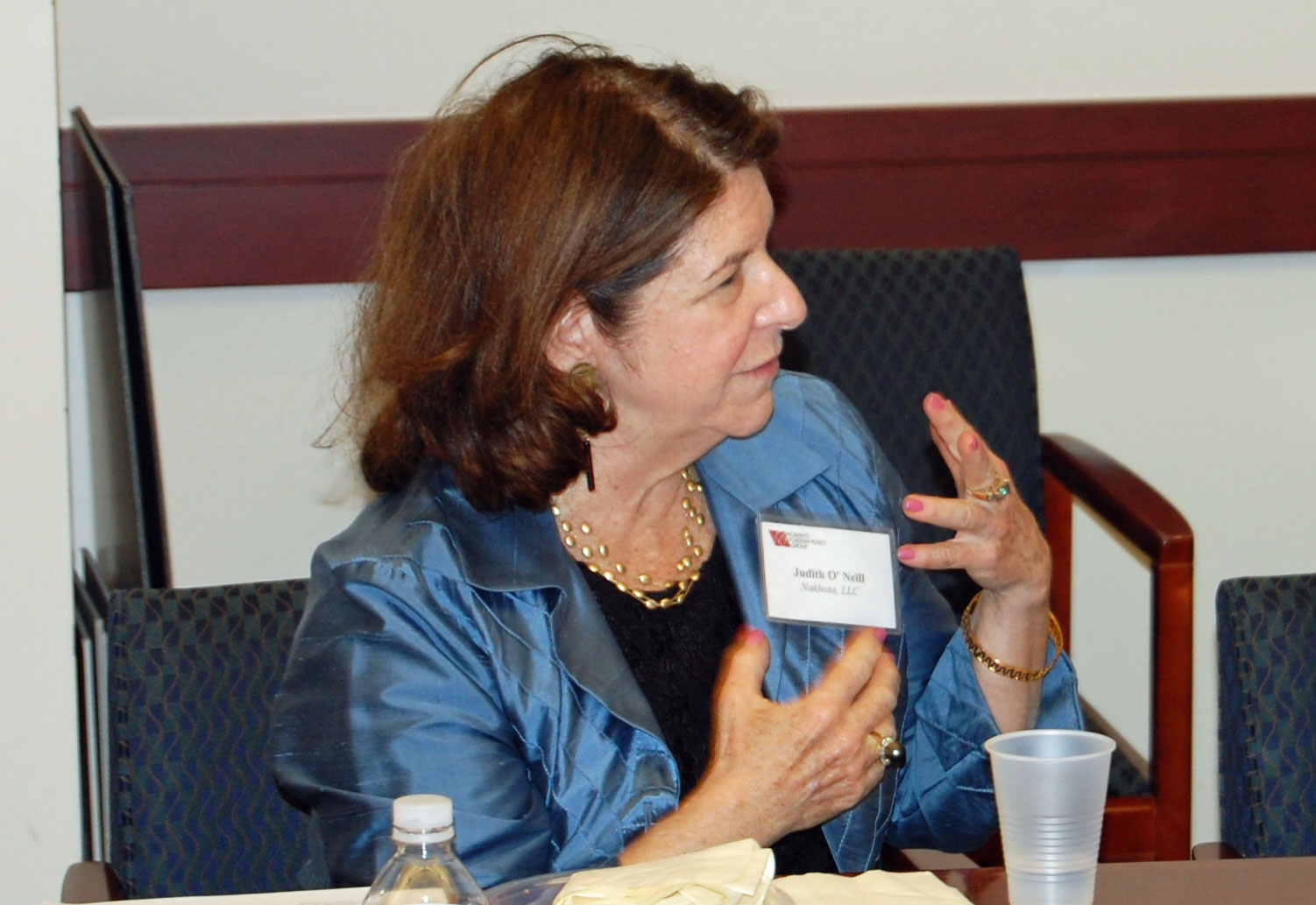 |
 |
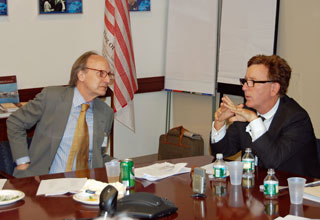 |
| |
|
|
|
| |
|
|